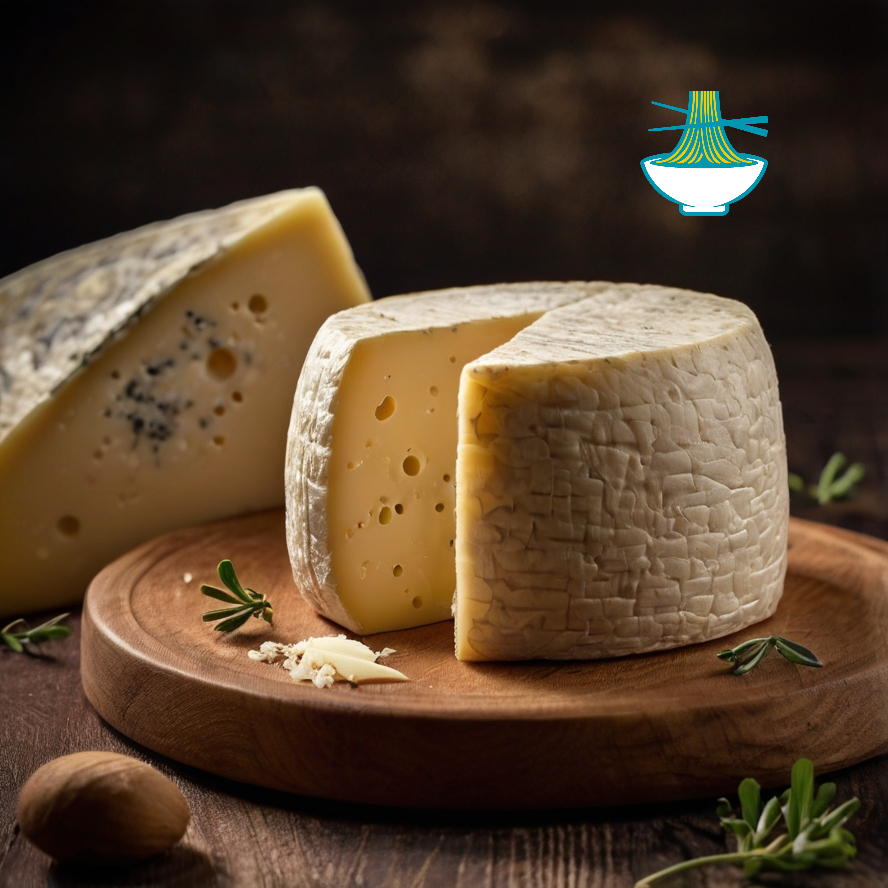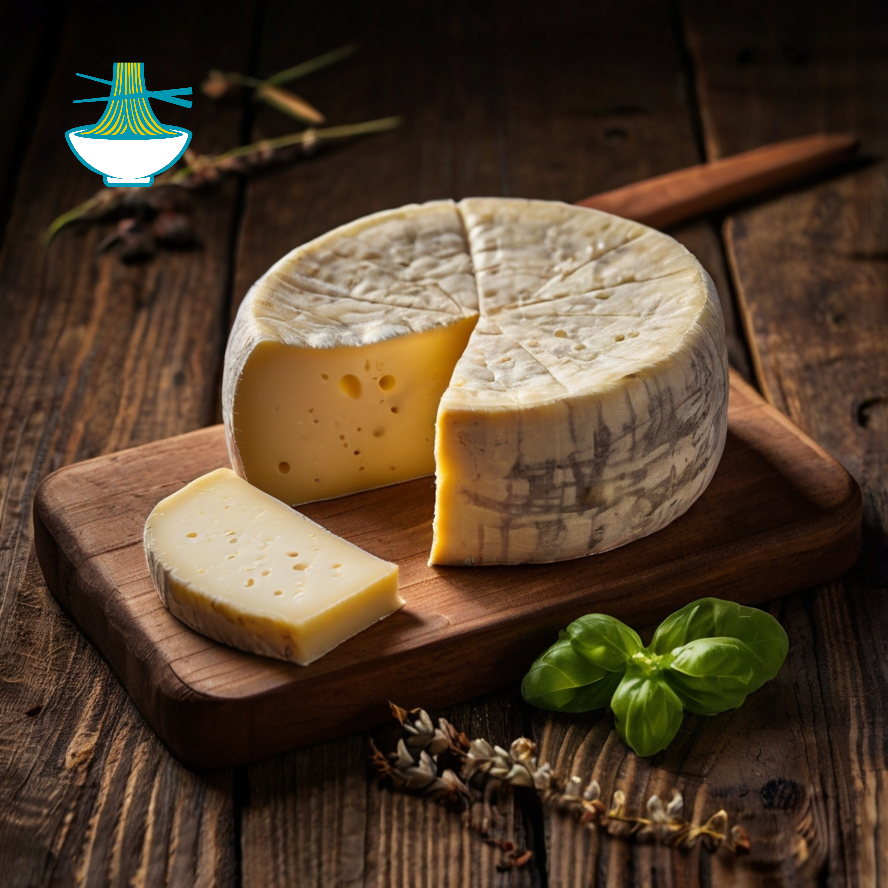Brânză de burduf is a strong, salty cheese made from sheep's milk, aged in sheep's stomach or a special cloth for a unique flavor. Its history dates back centuries, originating in Romania's mountainous regions. Traditionally, shepherds used this method to preserve cheese during long migrations. Today, it remains a cherished part of Romanian culinary heritage, prized for its robust taste and distinctive production process.
Ingredients:
- Sheep's milk
- Salt
- Rennet
Method:
- Heat sheep's milk to a specific temperature.
- Add salt and rennet, stirring gently.
- Let the mixture curdle and then cut into small pieces.
- Place the curds into sheep's stomach or a special cloth.
- Press and age the cheese for a specific duration, typically several months.
Enjoy the strong, salty flavor of Brânză de burduf!
Nutrition Value:
Sheep's Milk:
- Calories: Approximately 110-130 calories per 100ml.
- Carbohydrates: About 4.5-5 grams per 100ml.
- Protein: Contains around 5-6 grams per 100ml.
- Fat: Typically, 6-8 grams per 100ml.
- Sodium: Around 50-60 milligrams per 100ml.
- Cholesterol: Approximately 10-15 milligrams per 100ml.
- Vitamins: Contains significant amounts of Vitamin D, Vitamin B12, Riboflavin (B2), and Calcium.
- Minerals: Rich in Calcium, Phosphorus, Zinc, and Selenium.
Benefits: Sheep's milk provides essential nutrients like calcium and protein, supporting bone health and muscle growth. It also contains Vitamin D, crucial for bone strength, and Vitamin B12 for nerve function.
Salt:
- Calories: Negligible (usually not a significant source of calories).
- Carbohydrates: Negligible.
- Protein: Negligible.
- Fat: Negligible.
- Sodium: Approximately 2300-2400 milligrams per teaspoon (approximately 6 grams).
- Cholesterol: None.
- Vitamins: Generally not a significant source of vitamins.
- Minerals: Composed mainly of sodium chloride.
Benefits: While salt is often used for flavoring rather than nutritional value, it is essential for electrolyte balance in the body. However, excessive consumption can lead to health issues like high blood pressure.
Rennet:
- Calories: Negligible.
- Carbohydrates: Negligible.
- Protein: Negligible.
- Fat: Negligible.
- Sodium: Negligible.
- Cholesterol: Negligible.
- Vitamins: Negligible.
- Minerals: Negligible.
Benefits: Rennet is primarily used in cheese-making to coagulate milk proteins, aiding in the formation of curds. It does not contribute significantly to the nutritional content of the final product but is crucial for the cheese-making process.


Comments